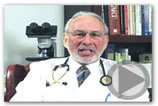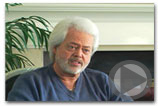Frequently Asked Questions
Why do I need Prescription Audio?
Stress is an essential component of life on earth. Without it, nothing would move in a positive direction. Without the stress of physical activity for example, your bones melt away and your muscles become flaccid and useless. Without the stress of learning new concepts and skills, your brain cells decrease their connections and you no longer possess a sharp and vital mind. Without the stress of a personal challenge, you never experience the exhilaration of achievement and life loses its meaning. The most successful centurions have in common a willingness to continue to experience these kinds of positive stresses and they do so for a lifetime. Not just the first 55 or 65 years, but over the course of their entire life.
If stress is this essential and positive, what then is all the bad news about stress?
The bad news is that the predominant stress in our lives today is not the positive stress that improves us; it is negative stress that breaks us down. It is this chronic stress that destroys our physical, mental and emotional well being. It is a major contributor to disease (many experts believe it to be the single most important factor) and results in millions of hours of sickness and disability and thousands of untimely deaths each year.
The physical responses to modern stress come from our ancient wiring and the fight or flight response. This response activates a part of your nervous system called the sympathetic nervous system. We could call this part of our nervous system the “gas pedal.” When this “gas pedal” is activated, physical changes occur that begin when the part of the brain knows as the hypothalamus which stimulates the adrenal glands to release the hormones adrenaline and cortisol. These hormones increase your heart rate, blood pressure and blood sugar to give your muscles what they will need to act now! Your muscles tense and all other systems not immediately necessary for survival shut down including digestion, and immune system function.
The parasympathetic nervous system on the other hand is that portion of our nervous system that allows us to recover from the effects of the sympathetic. It is the “brakes.” When active, our “brakes” will lower heart rate and blood pressure and increase immune system activity. Growth, healing and repair are the business of this braking system, and this is when the body has an opportunity to build strong bones and increase muscle tissue. Athletes know that training without rest results in breakdown not improvement. This is true for all systems in the body. Our braking system also allows for the full functioning of the portions of our brain reserved for higher levels of thought, reasoning, and creativity – functions not usually necessary in a survival moment.
Modern life constantly presses our sympathetic gas pedal while allowing little time and few mechanisms to engage the parasympathetic braking response. This chronic stress is very harmful to our bodies and our minds. Heart disease, strokes, cancer, auto-immune diseases, and metabolic diseases such as diabetes – all increase when we are under chronic stress. This makes perfect sense when you understand what happens in the body when under control of the sympathetic system. Here are just a few of the often unrecognized symptoms of stress. How many do you recognize?
Often unrecognized symptoms of stress:
* Inability to sleep
* Unexplained anxiety
* Unexplained anger
* Fatigue
* Weight gain
* Weight loss
* Cravings
* Feeling out of control
* Irritability
* “Senior moments”
* Head aches
* Back pain
* Depression
* Worry
* Disorganized and scattered
* Low or no energy
* Lack of motivation



